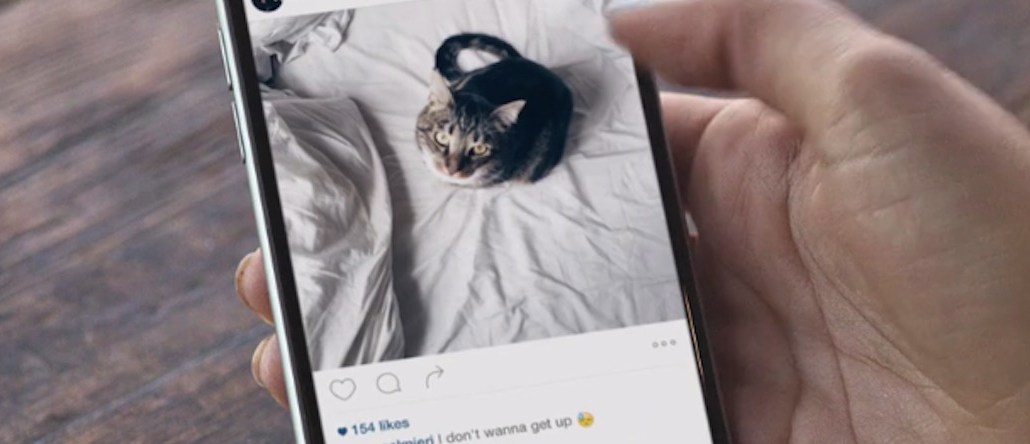Secure your place at the Digiday Media Buying Summit in Nashville, March 2-4
Six months in, Instagram’s dreaded timeline tweak finds some love

Last year, the internet collectively mourned the death of Instagram’s chronological timeline. Users complained. Marketers worried. And a change.org petition demanding its resurrection attracted over 342,000 signatures. But six months on, has it really been that bad?
The algorithmic timeline, which came to most U.K. users on June 6, prioritizes posts Instagram believes “you care about most,” which means they’re ranked from most interesting to least interesting using a similar secret sauce to its parent company Facebook.
The biggest worry was that organic reach — that rare beast — would die off for the brands that had invested in it as their “shop window.” And while Socialbakers data indicates 10 of Instagram’s most-followed brands, including Burberry and Bentley have seen a 6 percent dip in follower growth, marketers don’t really care.
“I get the feeling people still don’t like it,” said Megan Gunn, social media manager at cosmetics retailer Feelunique.com, which has 165,000 Instagram followers. “However, we are seeing a more loyal fan base because people are having to engage with us to see posts. It’s made us work harder on content.”
Now that organic reach is harder, the platform is less of a race for scale and more of a quest for quality, and thus engagement. In response to users, Gunn’s team has now prioritized more product-focused lifestyle content than before the algorithm. For example, choosing a close-up of eye makeup rather than a model’s face from a fashion show. And with the help of Insights, which rolled out last summer, the brand can work out who its most powerful and most engaged followers are.
“Instagram’s timeline has seen more change in 12 months than it has since its launch in 2010,” said Olly Rzysko, head of digital communications at Primark. “The algorithm change to its organic feed was a big step but 100 percent the right one.”
The fashion retailer, which has 3.9 million followers on Instagram, is one of the brands that has built its audience organically, without paid spend. While this growth hasn’t slowed, Rusko was positive about the change as it has helped maintain Instagram’s unique selling point: its curated aesthetic. Plus, brands that create engaging content are rewarded.
“Every creator, brand and user has to ensure they are posting great content for it to cut through,” he said.
New toys
While the timeline has become a careful, more curated experience, Instagram Stories offers brands a new opportunity to spitball rough, real-time content and see what sticks.
“Stories has helped display deeper messages and enable creators to share more than ever and also link back to websites and blogs to heighten more meaningful engagement,” said Primark’s Rusko.
And now that the platform has built out its ad formats — with the help of Facebook Ad Manager — those brands with sizable paid media budgets can still buy their way in. Something that’s now the norm on other platforms like Facebook.
While the bar of organic content is higher, that doesn’t mean paid ads are getting better, according to James Whatley, planning partner for innovation at Ogilvy & Mather Advertising.
“While creative output has been patchy at best, it has meant that brands are now focusing on paid-support only when it comes to this channel. This is a good thing,” he said.
More in Marketing

Future of Marketing Briefing: AI’s branding problem is why marketers keep it off the label
The reputational downside is clearer than the branding upside, which makes discretion the safer strategy.

While holdcos build ‘death stars of content,’ indie creative agencies take alternative routes
Indie agencies and the holding company sector were once bound together. The Super Bowl and WPP’s latest remodeling plans show they’re heading in different directions.

How Boll & Branch leverages AI for operational and creative tasks
Boll & Branch first and foremost uses AI to manage workflows across teams.








